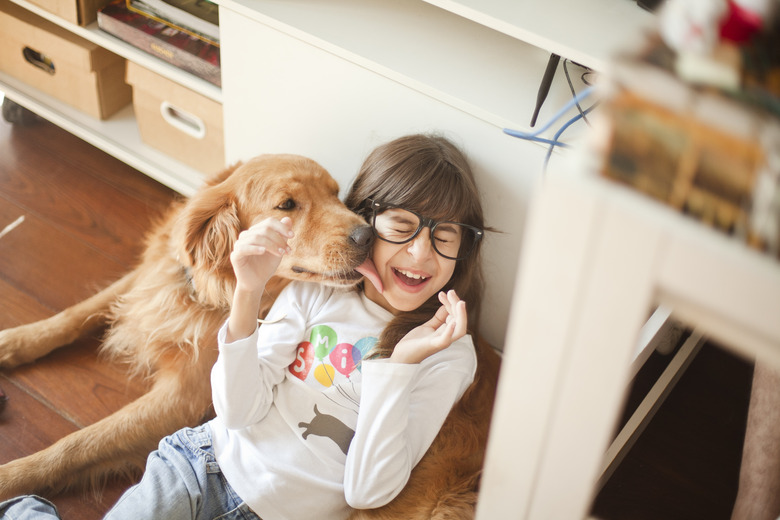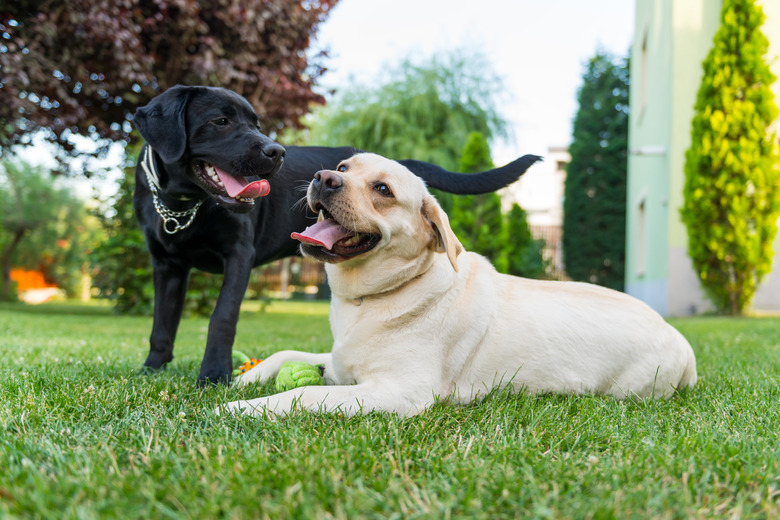How Dogs Show Empathy And Comfort Each Other
Do dogs feel empathy for each other, or are we anthropomorphizing them?
Empathy, one of the more complex human emotions, is the ability to identify with another person, sense what they're feeling, and respond emotionally in a similar manner. Having the ability to put yourself in another person's shoes is what makes us truly human.
But can dogs experience empathy, too? Yes, and they show empathy through physical comfort, greeting behaviors, and distraction, in an attempt to share joy, calm stress, or ease sadness.
Do dogs have empathy?
Do dogs have empathy?
Studies show that dogs do indeed show empathy for each other, for their people, and even for strangers. While not everyone in the scientific community agrees on the degree to which dogs have cognitive emotions like empathy, most dog owners ascribe human traits, emotions, or intentions to their dogs.
And why not? After all, we evolved together. Dogs are the oldest domesticated species, and have lived alongside humans, observing our every twitch, mood, and emotion, for thousands of years. Reading human emotions has been advantageous for their survival as a species, and elevated them to their unique status as "man's best friend."
Dogs also display more human behaviors than any other other animal. Because of these behaviors, it's easy to feel like your dog is almost human. Dogs are sentient beings, and like people, dogs have a rich inner life. Dogs feel joy, optimism, anxiety, fear, excitement, sadness, and other emotions, just on a different level than most adult humans.
Scientific data suggests that human toddlers start showing empathy, in a primitive way, around the age of two. Some scientists and psychologists believe that dogs have the mental and emotional capacity of a roughly two-year-old human child.
Still others believe that dogs have the emotional capacity of an even older child. Dr. Jill Sackman, a clinician in behavioral medicine and senior medical director of BluePearl Veterinary Partners' Michigan hospitals, emphatically states, "Dogs probably have the level of cognition of a three to five-year-old human." Dr. Sackman and other canine behaviorists, psychologists, and veterinarians believe that dogs have more advanced emotional capacity than they've been given credit for in the past. And numerous studies demonstrate that dogs show true empathy, not merely emotional contagion, toward other dogs and people.
Dogs show empathy to each other
Dogs show empathy to each other
In an experiment at the University of Vienna's Messerli Research Institute, 16 pairs of dogs were studied for their reaction to distress sounds from three different sources: dogs they lived with, unfamiliar dogs, and a computer-generated control sound with the same frequencies and timing of the distressed dog sounds.
The researchers took measurements before and after each of the three distress recordings to gauge the dog's heart rates, salivary cortisol levels, and behavioral responses. The dogs' housemate was brought into the room immediately after the recordings.
As you might have predicted, all the dogs reacted much more strongly to the recordings of other dogs — both their housemates and unfamiliar dogs — than the computer-generated ones. This behavior indicates that the dogs correctly interpreted and reacted to other dogs' unhappy sounds. While listening, the dogs' body language included stress signals like licking their lips, whining, yawning, shaking, a lowered body posture, and a tucked tail. Predictably, the dogs' stress indicators increased when they heard the distress sounds of their housemates, especially the cortisol level.
Reviewing this study, Stanley Coren, Ph.D notes in his Psychology Today column that upon being reunited with their housemates, the dogs showed many concern-related behaviors. Their body language included tail wagging, greeting behaviors, licking their housemate's faces, staying close to them, rubbing their body alongside them, and trying to initiate play.
It appears that in an attempt to cheer up their housemate, the dogs offered physical comfort and distractions. Dr. Coren believes that the dogs in the study showed empathy and even "sympathetic concern," which is a step beyond emotional contagion.
How do dogs express their emotions?
How do dogs express their emotions?
As a dog owner, you've surely experienced empathy from your dog at some time. She seems to avoid you when you're angry, and to offer you her canine version of comfort when you're sad. Dogs love sharing our joy, too—just try doing a happy dance without your dog joining in. The empathy dogs show to humans is similar to their empathetic response to other dogs in distress, in that they wish to alleviate your sadness or stress and share in your joy.
One key difference is that some dogs will stare deeply into your eyes, trying to make a connection. In empathizing with other dogs, even familiar or loved ones like housemates, staring could be misinterpreted for aggression.
Other than that, dogs show their empathy similarly to humans and to fellow dogs. If you're crying or feeling melancholy, your dog may drop his head in your lap, nuzzle you, or offer you a paw. Similar to showing empathy to other dogs, your dog may also stay close to your side , lick your hands, try to lick your face, whine, and generally empathize with your feelings.


